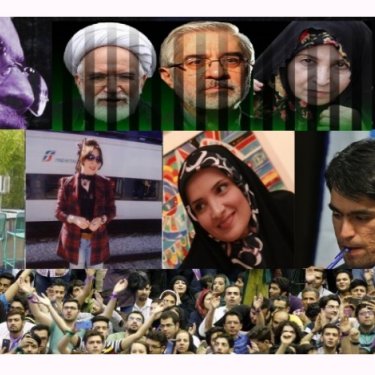Rouhani urged to keep media freedom pledges during second term

As Hassan Rouhani prepares to be sworn on 5 August for a second term as the Islamic Republic of Iran’s president, Reporters Without Borders (RSF) urges him to finally keep his promises to the Iranian people and to carry out a series of measures that would increase media freedom and promote the rule of law.
Above all, RSF calls for the unconditional release of the 10 journalists and 17 citizen-journalists currently detained in Iran, which is one of the world’s five biggest prisons for journalists and citizen-journalists. It is also one of the biggest prisons for women journalists.
During Rouhani’s first four-year term, at least 200 journalists and citizen-journalists were summoned, detained, and interrogated and at least 32 of them were given sentences ranging from three months to 16 years in prison.
The judicial system and the Revolutionary Guards, who are overseen by the Supreme Leader, were responsible for much of the persecution of journalists and the suppression of independently-reported news and information, but Rouhani’s minister of intelligence was also implicated.
Intelligence ministry officials arrested many journalists and citizen-journalists, including at least six during a wave of arrests from December 2016 to March 2017. Three of them – Narges Mohammadi, Hengameh Shahidi and Zeinab Karimian – were women journalists. They are still detained in extremely worrying conditions.
During a campaign meeting that President Rouhani gave on 15 May, his supporters chanted slogans calling for the release of political prisoners and blaming Supreme Leader Ali Khamenei for their detention. “My arms don’t have enough strength on their own to solve certain problems but they will be more effective with a vote of more than 51%,” Rouhani responded.
Rouhani won 57% of the votes cast four days later. He must not forget that it was his comments about free speech and media freedom and the release of political prisoners that persuaded progressively-minded Iranians, especially women and young people, to vote for him en masse.
As long as these demands are not satisfied, the Iranian people will not be able to regard themselves as free. RSF therefore urges President Rouhani:
- To keep his pledge to the millions of Iranians who are calling for an end to the arbitrary house arrest of Mehdi Karoubi, the owner of the now closed newspaper Etemad Melli, Mir Hossien Mousavi, the owner of the now closed newspaper Kalameh Sabaz, and Mousavi’s wife, the writer Zahra Rahnavard. These leaders of the protests against President Mahmoud Ahmadinejad’s disputed reelection in June 2009 have been branded as “leaders of sedition” and are being denied their rights. Their detention violates Iranian law as well as international standards.
- To seek the unconditional release of the 27 journalists and citizen-journalists currently imprisoned in Iran. The freedom to inform and be informed will not be guaranteed as long as journalists continue to be systematically imprisoned.
- To undertake to overhaul Iran’s media legislation in order to protect media freedom in accordance with article 19 of the Universal Declaration of Human Rights and article 19 of the International Covenant on Civil and Political Rights, to which Iran is a party.
- In particular, to undertake to decriminalize media offences and guarantee the freedom to inform without discrimination based on language, religion or political opinion. A revision of the 1986 press law (amended in 2000 and 2009 to include online publications) is urgently needed. The law allows the authorities to verify that the media “do not endanger the Islamic Republic,” “do not insult the Supreme Leader,” and “do not disseminate false information.” Amendments that require online publications to be licensed must be repealed.
- To undertake to ensure that journalists enjoy the right to free association, including the right to form unions and join them in order to protect their interests.
- To undertake to ensure that Iranian citizens enjoy the right to be informed and the right to free, uncensored and unmonitored Internet access. The creation of a “Halal Internet” (National Internet) designed to impose a digital apartheid constitutes a grave danger for Iran.
- To undertake to end arbitrary acts and impunity. The instigators and perpetrators of the murders of dissident journalists have never been punished. The many cases include Ebrahim Zalzadeh, Majid Charif, Mohamad Mokhtari, Mohamad Jafar Pouyandeh and Pirouz Davani, all executed by agents of the Ministry of Intelligence and National Security in November and December 1988. They also include the deaths in detention of Zahra Kazemi (2003), Firat news agency reporter Ayfer Serçe (2006), blogger Omidreza Mirsayafi (2009), former Abrar Economy reporter Alireza Eftekhari (2009), journalist and women’s rights activist Haleh Sahabi (2011), Iran-e-Farda journalist Hoda Saber (2011) and blogger Sattar Beheshti (2012).
Iran is ranked 165th out of 180 countries in RSF’s 2017 World Press Freedom Index.



